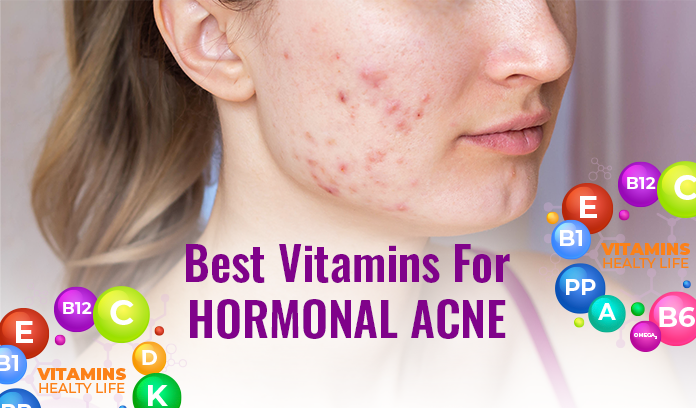What Is Hormonal Acne?
Hormonal acne is a type of acne that is primarily influenced by hormonal changes within the body. It often occurs in women during puberty, menstruation, pregnancy, and menopause, but men do often experience hormonal acne. Hormonal fluctuations can lead to an overproduction of sebum (skin oil) and a higher likelihood of clogged pores, creating an environment conducive to acne development.What Causes Hormonal Acne?
An increase in androgens (male hormones) like testosterone can bring about hormonal acne development. These stimulate the sebaceous (oil) glands, leading to MORE oil production. Excess oil, coupled with dead skin cells, can trap hair follicles, making it conducive for acne-causing bacteria to thrive.How Do Hormones Affect The Skin?
Hormones impact the skin by regulating oil production, cell turnover, and inflammation. Androgens, especially, play a crucial role in stimulating sebaceous glands, leading to increased sebum production.
Hormonal fluctuations can also affect the skin’s sensitivity and response to inflammation, contributing to acne breakouts.
Herbal Supplements For Treating Hormonal Acne
- Chasteberry: Known for its potential to balance hormones, chasteberry can be beneficial for women experiencing hormonal acne.
- Aloe vera: Has soothing anti-inflammatory and anti-bacterial properties that help heal acne-prone skin.
- Berberine: Exhibits anti-inflammatory and antimicrobial properties that could help combat acne breakouts.
- Tea tree oil: Known for having antimicrobial effects on the skin, this is a topical application that can help address acne-causing bacteria.
- Green tea: A powerhouse of antioxidants that help fight inflammation and support overall skin health.
Vitamins For Hormonal Acne
- Vitamin A: Supports skin health and helps regulate sebum production.
- Vitamin B complex (B3, B6, B12): Plays a role in skin health, and energy metabolism, and may have anti-inflammatory properties.
- Vitamin C: A potent antioxidant that promotes collagen production and may support wound healing.
- Vitamin D: Contributes to skin health and may have anti-inflammatory benefits.
- Vitamin E: An antioxidant that helps prevent skin cells damage.
- Zinc: Fortifies immune defense and has anti-inflammatory properties.
- Folate: Crucial for cell division and repair.
- Myo-inositol: May help manage hormonal imbalances.
- Magnesium: Supports overall skin health and hormonal balance.
- Fish oil: Provides essential omega-3 fatty acids and has anti-inflammatory properties.
- Probiotics: Help maintain a balanced gut microbiome, which indirectly affects skin health.
Alternative Methods To Treating Hormonal Acne
- Topical retinoids: Help prevent new acne lesions from developing.
- Birth control pills: May help regulate hormonal imbalances in women.
- Spironolactone: Can be prescribed to reduce androgens and control hormonal acne breakouts.
- Lifestyle Changes: Managing stress, a balanced diet, and regular activity can positively influence hormonal and skin health.
Myths And Facts
Myth: Eating chocolate or greasy foods causes acne breakouts.
Fact: While diet can affect skin health, there is no direct link between specific foods and acne for everyone. However, a balanced diet is essential for your well-being.
Myth: Only teenagers struggle with acne.
Fact: Acne affects people of all ages, and hormonal acne can persist into adulthood.
FAQ’s
Vitamin A, Vitamin B complex, Vitamin C, Vitamin D, and Zinc are commonly regarded as beneficial for hormonal acne.
As a form of vitamin B3, niacinamide is anti-inflammatory and can help maintain the skin’s natural oil balance, which in turn may help improve your hormonal acne.
Spironolactone and birth control pills are often prescribed to balance hormonal fluctuations and manage acne.
While vitamins can improve skin health, they may not entirely prevent hormonal acne. A holistic approach including a nutrient-dense diet, consistent skincare, and lifestyle changes is often recommended.
Supplements containing vitamins, minerals, and herbal extracts, may help manage hormonal acne when used as part of a thorough skincare and health regimen.
However, it’s crucial to consult with a healthcare professional before starting any new supplement routine.











